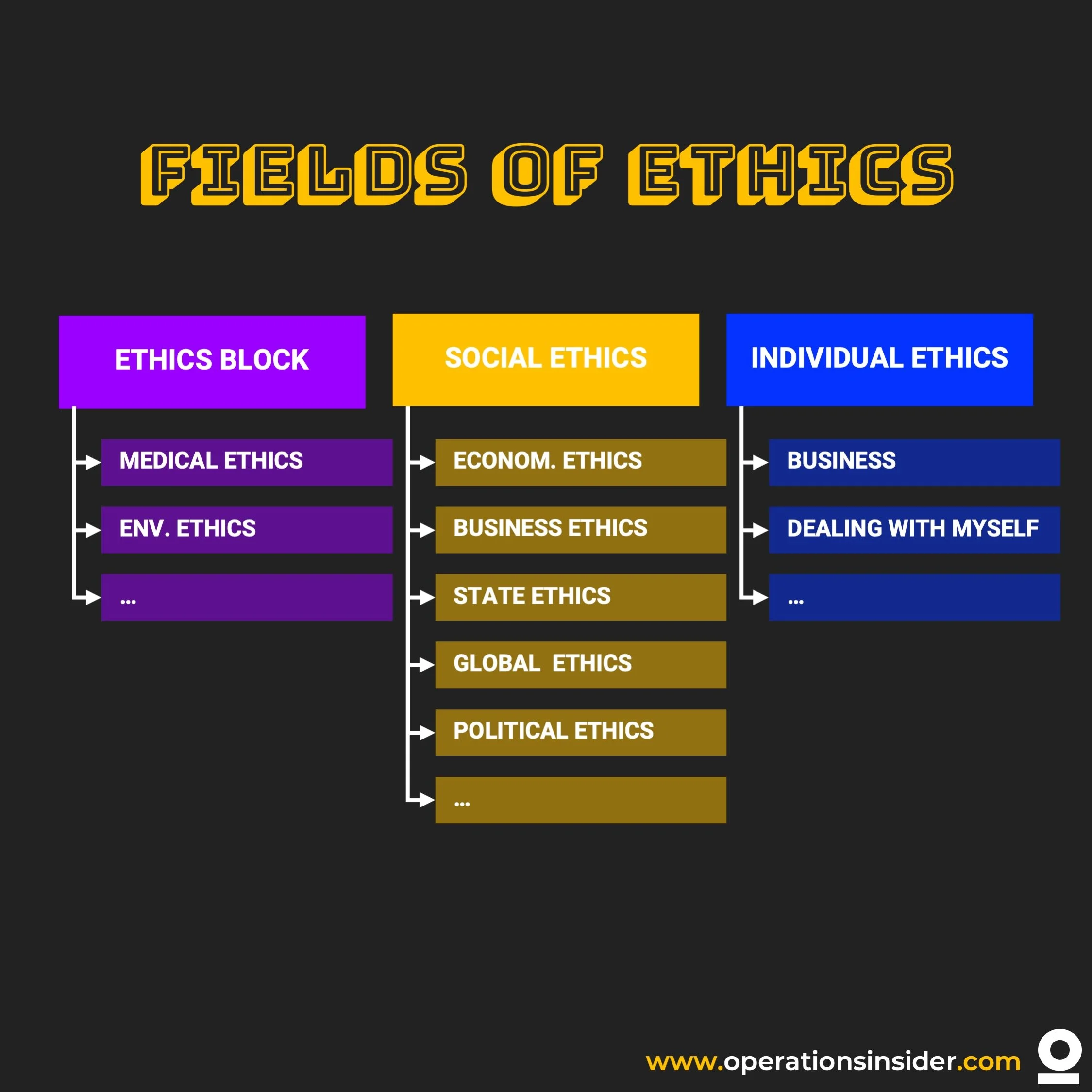Part 2 - ABOUT ETHICS
Ethics is an enigmatic concept. So that the chameleon does not change its colors quite so many times, we should explain in advance what we mean when we say “ethics”. There is no all-encompassing ethic that always applies. The simple, but yet not simplistic, basic question of ethics goes back to Immanuel Kant and gets to the point: How should I act? Being and striving, the motives and consequences of acting are in the focus of ethics. Also that which brings me out of the usual, the routines, and opens new paths is also a core ethical subject. What are my maxims that lead to action?
In daily language usage, we are confronted with the concept of, ethics* in different ways, but basically in three fundamental meanings:
Ethics and values are simply used as equals. Meaning — we are always ethical and we all have values, which are, however, not primarily distinguished by their being “good or bad”. In this sense, descriptive ethics, which we actually live, are often also seen as the discrepancy between convictions and lived values.
Ethics as valuation: When someone behaves “ethically”, we also say that he has behaved “well” or “desirably”. In this case, ethics becomes a judgmental concept.
Ethics as the super-ordinate concept of a scientific discipline (branches: social sciences or philosophy) — see more about this under the topic “Hyphenated Ethics”.
In order to further tackle the conceptual haziness, we still have to define the concepts, namely ethics itself, as well as ethos and morality:
Morality: the actual norms and rules of a society. It is accepted without reflection and is also primarily culture based and therefore not an active exercise in learning. Motto: “That’s just what is done” — example: Wash your hands before dinner.
Ethos: Greek: housing, stall, tribe, custom, habit. One speaks of a civil ethos or work ethos (example: the management ethos). Ethos therefore means individual or group-specific ethics. Values and virtues that are derived from morals for an individual or a group of people and which are specified for them. Motto: ”That is how I/we do it” — Example: we, as a family, wash our hands before dinner.
Ethics: the theoretical reflection of morality that is then reflected in practice. Grounded and reflected norms and values. Motto: Why should I do certain things? Example: You should wash your hands before eating in order to avoid possible infections.
The concept of ethics as we will use it in the context of this lesson script and also within the framework of the lecture, takes all three reflection and development stages into consideration and means:
Definition:
Ethics is … what has become a (generally accepted) rule in an individual’s life due to habit or tradition or by way of the norm: that is my/our lifestyle, that pertains to me, to us. Ethics can be observed, is personal, but never private.
Hyphenated Ethics — A System
The great ethical systems of philosophies and religions have different conditions and assumptions that lead. to certain values (value mindset). Despite all differences, ethical main subjects can be identified:
Personal Illustration
The ethical fields can be divided into three large blocks. The disciplines named above are present in all of them. Two of these subjects are essential to our theme — business ethics and individual ethics:
Personal Illustration


